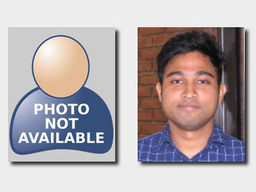Location
Lecture Hall 1: Biological Sciences : 101
Date & Time
April 10, 2019, 11:00 am – 12:00 pm
Description
| Session Chair: | Zhou Feng |
| Discussant: | Dr. Hoffman |
Speaker 1: Nivya George
- Title
- Change of Urban South Indian School Children Using an Accelerated Longitudinal Cohort
- Abstract
- Studies on growth are mostly based on longitudinal or cross-sectional evaluations across different ages of children. The accelerated longitudinal design (ALD) is a method used to conduct several short-term longitudinal studies of adjacent age cohorts simultaneously, producing temporally overlapping measurements of the age groups, and then linking the segments of limited longitudinal data from different age cohorts to create a common long-term developmental trend or growth curve. The method combines true longitudinal and cross-sectional design, which can maintain most of the advantages of both, reducing problems of retest effects and attrition, but may also be able to separate aging effects from period and cohort effects. Existing methods utilize data on multiple follow ups for each cohort to construct the accelerated model. We examined the feasibility of utilizing multiple age cohort data with one follow up in unequal intervals to construct an accelerated cohort for estimating height in Indian school children from 4 to 15 years. Longitudinal height data for 3248 children (1856 boys and 1392 girls) in the age group 4–12 years was used with varying follow-up intervals of 2 to 5 years. Nine age specific cohorts were identified with height data at two time points. The progression of each child with respect to the trajectory of the cohort was computed as a function of the deviation of age of assessment to the mean age of the cohort. The progression of each age cohort was computed as the difference between mean age at assessment of the cohort to which the individual belonged and the overall mean age. A model was constructed to estimate the height of boys and girls from 4–15 years using 9 age cohort data with one follow up with an average follow up interval of 3 years with sufficient overlap of age groups.
Speaker 2: Abhishek Balakrishna
- Title
- Elastic Plate Interacting with a Gas in a Semi-infinite Tube: Periodic Solutions
- Abstract
- We consider a conservative system consisting of an elastic plate interacting with a gas filling a semi-infinite tube. The plate is placed on the bottom of the tube. The dynamics of the gas velocity potential is governed by the linear wave equation. The plate displacement satisfies the linear Kirchhoff equation. We show that this system possesses an infinite number of periodic solutions with the frequencies tending to infinity. This means that the well-known property of decaying of local wave energy in tube domains does not hold for the system considered.
Tags:
